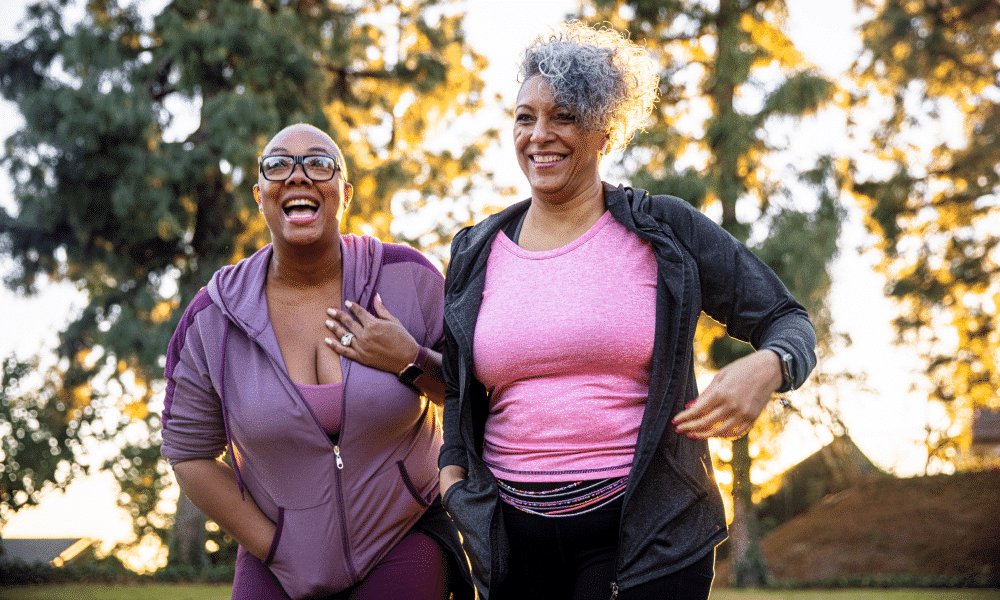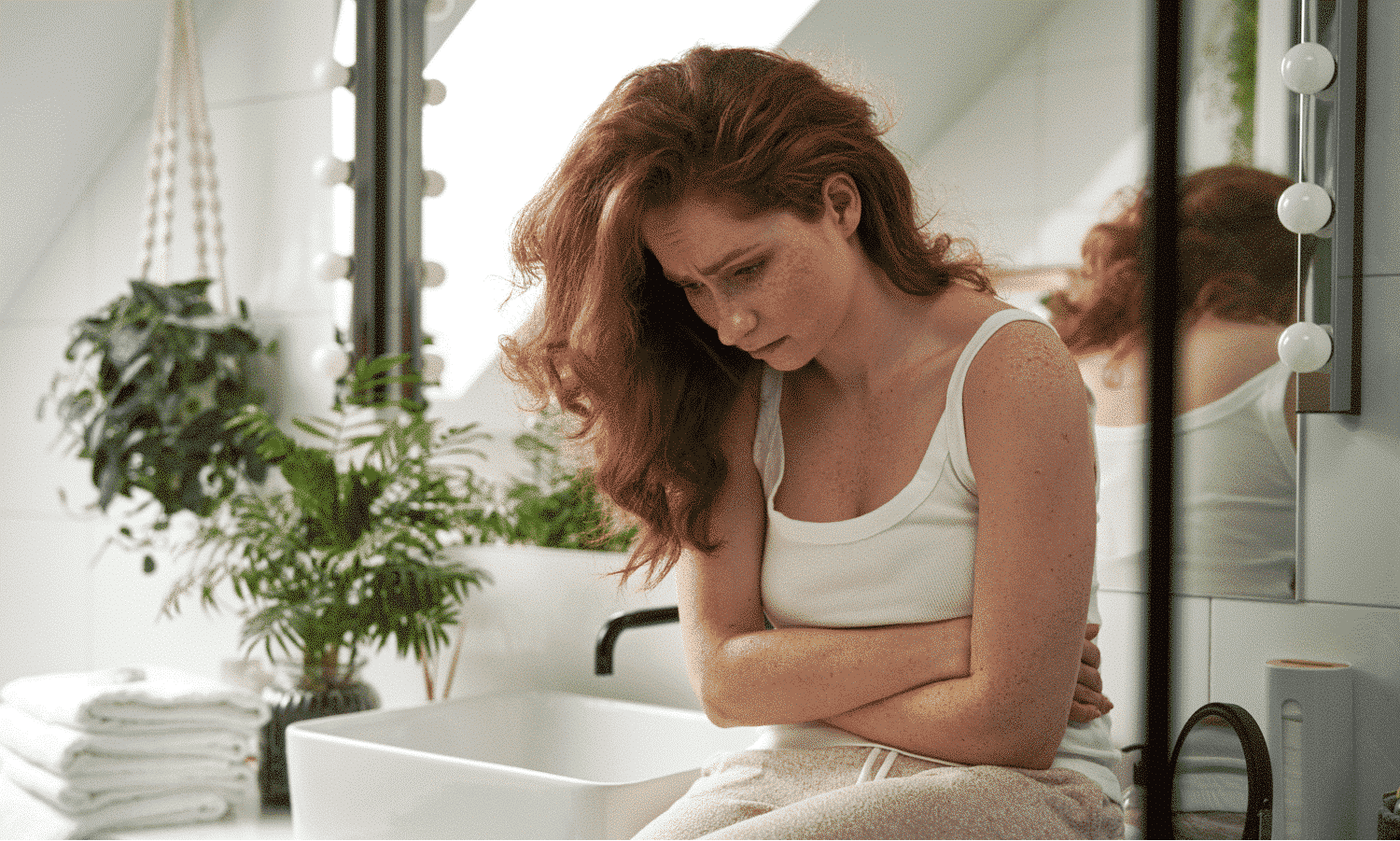|
Getting your Trinity Audio player ready...
|
Living with breast cancer can be both physically and mentally challenging.
A cancer diagnosis and the treatment itself can put a lot of strain on the body and lead to enormous changes, often resulting in both mental and physical exhaustion. Remind yourself to be kind to yourself.
When living with cancer, it’s vital that you support your body and mind as lovingly as possible throughout your treatment and recovery.
One effective way to do this is through physical exercise. Getting moving can help you cope with the changes going on with your body and even counteract them.
But, don’t panic. When we say physical activity, we’re not talking about running a marathon or jumping out of a plane. Getting moving doesn’t always mean a draining exercise session. Light to moderate physical activity that you can integrate into your daily routine can already make a big difference- mentally as well as physically.
There’s often an assumption that a full recovery from breast cancer requires rest, rest, and more rest. But regular physical activity is vital when you’re living with cancer. Keep on reading to find out more.
Movement can and should be part of your day
Physical activity really gets your body going and has many positive effects on our bodies and minds. Regular movement can help to support your body in your day-to-day life if you are living with breast cancer.
Certain physical complaints that go hand in hand with breast cancer can be reduced by light exercise and can even be partially prevented by regular physical activity.
Regular movement has the power to improve your overall quality of life and well-being. How? By having an impact on the following factors:
Fatigue and tiredness
Cancer cells use up a lot of the body’s energy reserves and cause inflammatory reactions in the body. Adding to this, the psychological stress of a cancer diagnosis can also have a big impact on the body.
When it comes to treatment, chemotherapy and radiotherapy can damage the body’s tissue and may lead to a disturbed formation of blood cells. As blood cells are responsible for the transport of oxygen, all of this combined can lead to extreme exhaustion and fatigue.
Physical exercise can offset all of the above by stimulating blood circulation and improving the oxygen supply in the body. Movement also activates the energy power of blood cells and helps them generate new energy. This will help you feel more active and alert and help your body to tackle exhaustion head-on.
Quality of sleep
While you may be dealing with exhaustion and fatigue, when it comes to getting enough good quality shut-eye, cancer can also cause problems.
Sleep disorders can be one of the common side effects of chemotherapy and radiotherapy, and are often the result of the worry and stress you may be dealing with.
If you’re finding it difficult to fall asleep, physical exercise can help you to doze off in good time, and also prolong the deep sleep phase when intensive physical recovery and regeneration take place. Sleep is magic so be sure to do whatever you can to make sure you’re getting enough.
Depression and anxiety
Exercise releases happiness hormones like serotonin and dopamine in the body, helping to lift your mood and reduce stress. Physical activity also helps boost your self-confidence and improve your body image, both of which can take a hit after a cancer diagnosis.
Lymphoedema
If a lump is found in the breast, lymph nodes in the armpit area may also be removed during breast cancer surgery for diagnostic purposes. This can disrupt lymphatic drainage in the arm and upper body, increasing the risk of lymphoedema.
Exercise stimulates the muscles around the lymph vessels, which act like a pump to help transport fluid. This makes it easier for fluid to be absorbed from the tissues through the lymph vessels and returned to the vascular system, so you can also move your arm more easily again.
Muscle loss and weight fluctuations
If you’re going through acute breast cancer treatment, you may find that you don’t manage to get moving for several weeks, which can cause you to lose muscle mass. This can lead to weight loss and feelings of weakness.
Physical activity helps keep your muscles toned and your weight stable. Exercise also helps prevent weight gain caused by hormonal changes.
Immune system
A strong immune system is vital for a healthy and cancer-free life. Physical exercise helps activate the immune system and helps fight inflammation in the body. It also contributes to cell repair and the prevention of cell damage through antioxidant effects.
Cancer growth and recurrence
Hormone receptor (HR+) breast cancer is a hormone-dependent growing cancer that’s related to increased levels of estrogen in the body. Exercise lowers estrogen levels in the blood and tissues, which means it can prevent breast cancer growth.
Physical activity also competes with cancer cells for energy sources. Cancer cells feed mainly on glucose, which is consumed during exercise. Regular movement can therefore improve your long term health by tackling cancer recurrence.
Physical activities to try if you have breast cancer
As we said, there’s no need to run a marathon every day or get into extreme sports to help you feel better. There are a number of simple activities you can do to keep your body moving.
It is, however, important to consult your doctor before starting a new physical activity. Don’t forget to also consider your personal physical limits. You and your experience are unique, so be sure to find the level and kind of physical activity that’s right for you.
On days when you feel tired and weak, start with very light movements you can do throughout the day. For example, getting up frequently to get a glass of water or going outside to take a short walk in the fresh air. Gentle stretching and light yoga for a few minutes a day can also be a good start.
When you’re feeling more energetic, you can get your body moving a little more with moderate exercise.
This can include:
- A longer walk or Nordic walking
- Yoga
- Tai Chi
- Gymnastics
If you don’t feel like leaving the house, you can also try these activities in the comfort of your own home. Try them alone or with friends you feel comfortable with.
Household chores like vacuuming, gardening, or mowing the lawn are also moderate to vigorous physical activities and can be done if you feel strong enough.
In the long term, you can try to include activities that increase your endurance in your exercise plan. These include cycling, dancing, or jogging.
At the same time, be mindful of your physical limits, and don’t be too hard on yourself if you don’t feel fit enough yet.
To stay fit and healthy, the American Cancer Society recommends “at least 30 to 60 minutes of moderate to vigorous physical activity at least 5 days a week.”
Keep on moving
Physical activity should always go hand-in-hand with a balanced diet. Physical movement requires higher energy resources, so you should provide your body with nutrients by following a balanced diet. Also, make sure you drink plenty of fluids, especially when you’re working up a sweat while exercising.
Reducing stress and avoiding situations that throw you off balance can also do wonders for your overall well-being. Try practicing meditation, mindfulness, and breathing exercises alongside regular exercise.
If you want to find out more about the relationship between physical activity and breast cancer, check out this interview with a physical therapist and cancer survivor who explains why you shouldn’t skip your workout.
If you’re living with breast cancer and want to find out how else you can look after your mental health throughout your treatment, take a look at this article right here.












